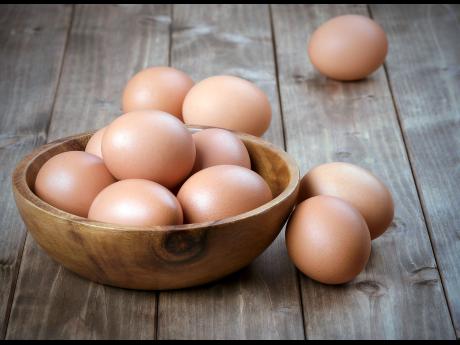Ounce of Prevention | The power of protein
Your body needs two main types of nutrients - the macronutrients which are required in large quantities and the micronutrients which are only used in small milligram or microgram amounts.
Along with fats and carbohydrates, protein is a macronutrient, as the body needs relatively large amounts of it. Regardless of their source, all proteins are made from a group of 22 substances called amino acids. Some of these amino acids our bodies cannot manufacture and they must be obtained from our food.
Protein, a vital component of every single cell in the body, is stored mainly in muscles and organs and is essential for muscle building and repairing, especially after exercise.
Protein is also needed to make red blood cells, produce hormones, boost your immune system, and help keep hair, skin and nails healthy. Individuals who are protein deficient may complain about fluctuating energy, muscle and hair loss, brittle nails and lacklustre skin. Hormonal imbalance and infertility in both men and women may also occur.
CHOOSE HEALTHY PROTEIN
All proteins are not equal and protein does not mean just meats. There are good sources of protein from both plants and animals, but I do not advise consuming much animal foods, as they often come with lots of unhealthy saturated fats along with chemical pollutants like hormones, pesticides and antibiotics.
Soy is one of my preferred proteins, as it is a complete protein containing all the essential amino acids. I use it in tasty shakes, drinks, protein bars and soy nuts, as well as tofu, miso, tempeh and textured vegetable protein.
Choose a high-quality, organic soy source whenever possible.
Other healthy sources of protein include whey, sea fish, organic poultry and eggs, beans, peas, nuts, seeds and whole grains.
Whereas a high meat diet can be burdensome to the kidneys, research has repeatedly shown that soy protein enhances kidney function.
In addition, soy is good for the heart, the circulation, cholesterol levels, hormonal balance and bone health, as well as being protective against several cancers. I have used it as an integral part of my weight and health management programmes.
USE PROTEIN TO LOSE FAT
Many weight-loss programmes now focus on the fact that it is not just how much you eat that promotes obesity, but what you eat, especially the proportions of protein to the carbohydrates and fats in your diet.
Unfortunately, many of these diets are not based on the most up-to-date scientific information.
Let's consider the facts about protein and weight loss.
Carbohydrates, the starches and sugar, are converted in the body into blood sugar (glucose) to be burnt for energy. However, if we eat more carbohydrates than we can use, the excess is stored in the body as fat, usually around the waistline. You can get very fat from eating starches and sugar even with little or no fat in your diet.
However, if we restrict our intake of carbohydrates, then the body begins burning excess body fat as the alternative source of energy. A major reason for this is the hormone insulin. Carbohydrates encourage excess insulin production, which promotes belly fat. Protein foods tend not to stimulate insulin production and encourage the body to burn fat instead of making and storing it.
Another benefit of protein for weight loss is its ability to help manage hunger. When protein is absorbed, it sends a signal to the brain to decrease your hunger. A further benefit of protein is that it raises your metabolism even without exercise by maintaining your muscle mass.
Customise your protein intake: Each individual has an ideal level of daily protein consumption based on their weight and their lean body mass. The formula is about one gram of protein daily for each pound of lean body mass.
My team of wellness coaches have simple instruments that perform a body scan to calculate a person's lean body mass.
In general, most women would require 75 or more grams and men 100 or over grams of protein daily.
Eat healthy carbohydrates: Most of your carbohydrates should be complex, coming from vegetables and fruit. The recommended optimal intake is seven servings daily for women and nine servings daily for men of fruit and vegetables. One medium-size fruit, a cup of raw vegetables or half a cup of cooked vegetables constitutes a serving.
Drink lots of water: Aim to drink one half ounce of healthy fluids per pound of your body weight. The best fluid choices include pure water, herbal teas, coconut water and fresh vegetable and fruit juices. This enhances your metabolism and improves detoxification.
Add supplements: Our modern food supply is now woefully deficient in several important nutrients while laden with other unhealthy ingredients. Supplementing with high-quality supplements like the omega-3 fats prevents those imbalances and optimises health and weight management.
- You may email Dr Vendryes at tonyvendryes@gmail.com or listen to An Ounce of Prevention on POWER106FM on Fridays at 9:10pm. Visit www.tonyvendryes.com for details on his books and articles.


